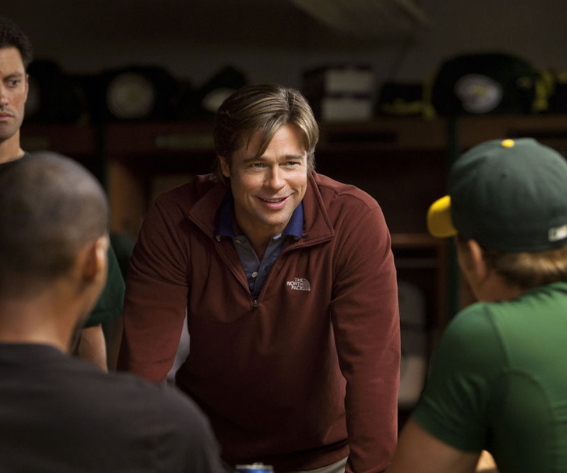Movies have always been great at showing us how people really think and act. There’s nothing quite as gripping as watching brilliant minds play chess with real-world consequences. Strategic thinking pops up everywhere — ancient battlefields, corporate backstabbing, high-stakes poker games. It’s the stuff that makes for incredible storytelling because, let’s face it, we’re all fascinated by people who can think three steps ahead.
We’ve picked four films that don’t just showcase strategy — they make it absolutely riveting. These aren’t your typical popcorn flicks. They’ll actually teach you something about planning, making tough calls, and why thinking ahead can change everything.
Patton
George S. Patton was, without question, one of the most controversial generals in American history. The 1970 film about his life is pure gold for anyone interested in military strategy. What’s fascinating about Patton isn’t just that he won battles — it’s how he did it. The guy understood that war is as much psychological as it is physical. He’d show up in perfectly pressed uniforms while his troops were covered in mud, not because he was vain, but because he knew the power of image.
The film shows how Patton consistently outmaneuvered opponents by thinking like them. He studied Rommel’s tactics so intensively that he could predict the German general’s moves. “Rommel, you magnificent bastard, I read your book!” isn’t just a great movie line — it’s a masterclass in knowing your enemy. Patton succeeded because he balanced audacity with calculation. That’s applicable whether you’re running a military campaign or launching a startup.
The Imitation Game
Alan Turing’s story is absolutely mind-blowing when you really think about it. This guy and his team at Bletchley Park were tasked with cracking the “unbreakable” Enigma code. The math alone would make most people’s heads spin. “The Imitation Game” shows that pure intelligence wasn’t enough. Turing had to navigate office politics, convince skeptical superiors, and manage a team of brilliant but difficult personalities. The strategic challenge wasn’t just mathematical; it was deeply human.
What really gets me about this film is how it demonstrates that breakthrough thinking often comes from approaching problems differently. Turing didn’t just try to decode individual messages — he looked for patterns, built machines, and essentially invented early computing. The movie perfectly captures how strategic problem-solving works when you’re facing impossible odds. And there’s a lesson here that applies everywhere today — from cybersecurity to advanced research, and even US online poker, where algorithms and strategic thinking define success in ways Turing probably never imagined.
The Social Network
Mark Zuckerberg’s rise is either inspiring or terrifying, depending on your perspective. “The Social Network” doesn’t paint him as a hero — it shows him as a brilliant strategist who understood something most people missed: the internet was about to change human connection forever. What strikes us about this film is how it captures the ruthless nature of tech innovation. Zuckerberg didn’t just code Facebook; he outmaneuvered competitors, handled legal challenges, and made strategic partnerships that positioned the company for massive growth.
The movie’s genius lies in showing how modern business strategy works. It’s not just about having a good product anymore — you need to think about intellectual property, user acquisition, monetization, and scaling. All while your former friends are suing you. There’s a brutal lesson here about strategic risk-taking. Zuckerberg made enemies, burned bridges, and faced massive legal bills. But he also created one of the most valuable companies in history. Sometimes strategy means accepting that you can’t make everyone happy.
Moneyball
Billy Beane’s story is our personal favorite because it’s about the little guy beating the system. The Oakland A’s had no money compared to teams like the Yankees, so Beane had to get creative. Enter sabermetrics, which is basically using statistics to find undervalued players. Sounds simple, right? It wasn’t. Beane faced resistance from scouts who’d been doing things the same way for decades, players who didn’t understand why they were being benched, and media that thought he’d lost his mind.
What we love about “Moneyball” is that it shows how data-driven strategy can overcome traditional advantages. The A’s couldn’t outspend their competitors, but they could outthink them. They found players other teams overlooked — guys who got on base consistently but didn’t look like traditional stars. The film teaches something crucial: effective strategy often means ignoring conventional wisdom. Beane trusted the numbers when everyone else trusted their gut. And it worked.
This principle applies everywhere. Marketing campaigns, investment decisions, hiring choices — sometimes the data tells you something completely different from what “experience” suggests.
Why These Films Matter
These four movies each show strategy in action across completely different fields. But they share common themes that are worth paying attention to. First, successful strategists don’t just follow the playbook — they rewrite it. Patton revolutionized tank warfare. Turing invented computing. Zuckerberg redefined social interaction. Beane changed how sports teams evaluate talent. Second, strategy isn’t just about being smart — it’s about being adaptable. Each of these figures faced unexpected challenges and had to adjust their approach while maintaining their core vision.
Finally, strategic thinking often means being willing to be unpopular. All four protagonists faced criticism, resistance, and outright hostility for their unconventional approaches. The next time you’re facing your own strategic challenge, remember this: the goal isn’t just to play the game better — it’s to change the rules entirely.









Leave a reply